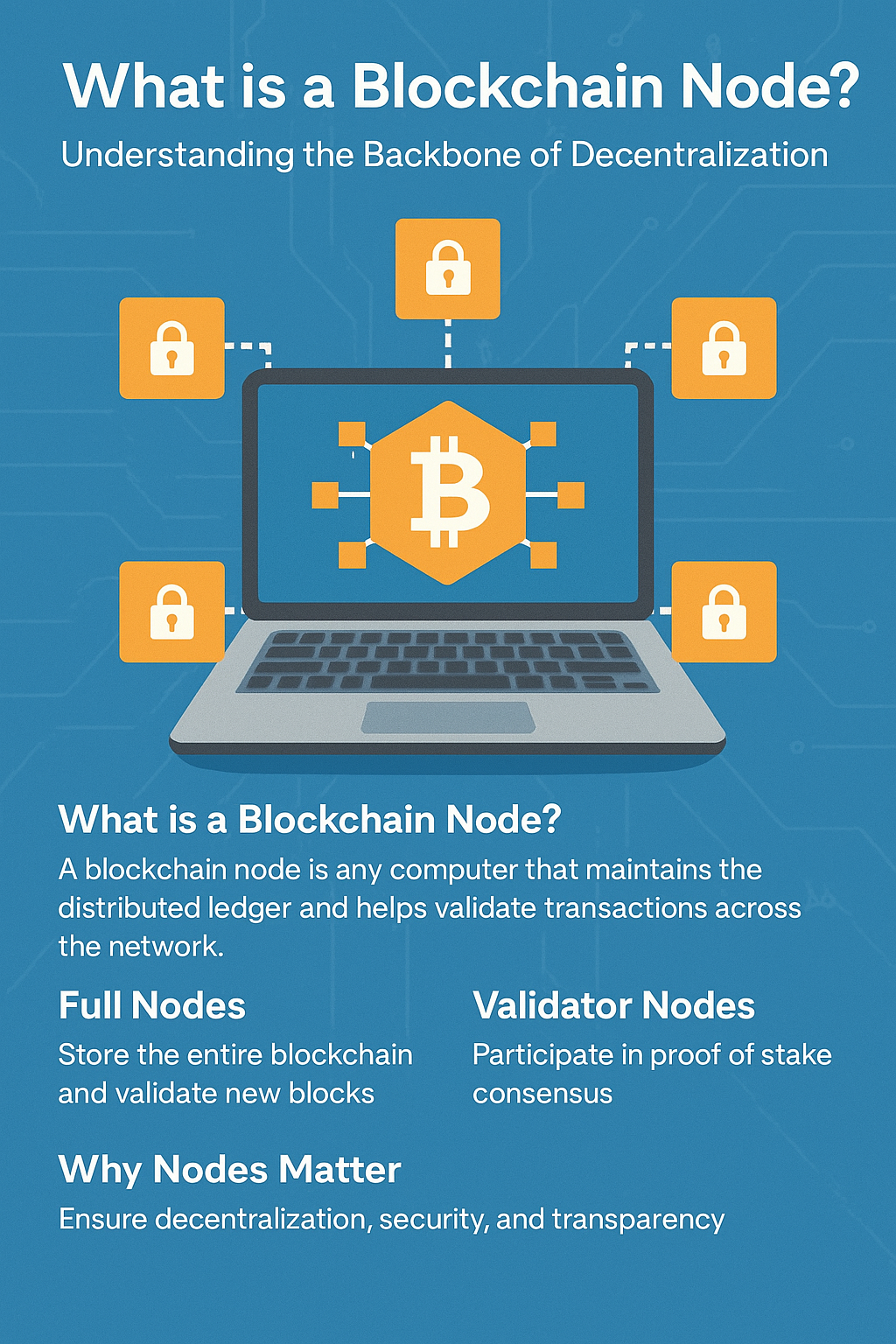Blockchain
Crypto
blockchain guide, blockchain infrastructure, blockchain network, blockchain node, blockchain security, blockchain technology, crypto education, crypto validation, Decentralization, distributed ledger, full node, light node, node types, proof of stake, validator node
Akshay Thakur
0 Comments
What is a Blockchain Node?Understanding the Backbone of Decentralization
Blockchain technology thrives on decentralization — and at the heart of that system are nodes. Without them, blockchains wouldn’t exist. But what exactly is a node, and why is it so essential?
1. What is a Blockchain Node?
A blockchain node is any computer that connects to the blockchain network. It maintains a copy of the distributed ledger and helps validate and relay transactions across the network.
Nodes are responsible for ensuring that every transaction is legitimate and that every block is in sync across all users — making the system transparent, secure, and decentralized.
2. Types of Blockchain Nodes
There are several types of nodes, each serving different purposes:
Full Nodes
- Store the entire blockchain history
- Validate new blocks and transactions
- Provide the most secure and independent access to the network
Light Nodes (SPV Nodes)
- Store only partial data (headers of blocks)
- Rely on full nodes for verification
- Great for mobile and lightweight apps
Validator Nodes
- Participate in Proof of Stake networks
- Responsible for proposing and validating new blocks
- Earn rewards for honest participation
3. Why Nodes Matter
- Decentralization: No single entity controls the network.
- Security: Nodes help detect tampering or double-spending.
- Transparency: All users can verify transactions.
- Redundancy: The network doesn’t go down if one node fails.
4. Anyone Can Run a Node
You don’t need special permission to run a node. By running one, you contribute to the health, transparency, and decentralization of the blockchain. All you need is the software and enough storage and bandwidth.
Conclusion
Nodes are the guardians of blockchain trust. Whether validating transactions or keeping copies of the ledger, they play a vital role in making decentralized systems function effectively.
Take a Break with Flutter Bees
Learning tech concepts can be intense — why not refresh your mind with the Flutter Bees
- Tap and relax in the Clicker Game
- Defend your hive in the Bee Hive Defense Game
- Earn points by watching and completing tasks
It’s the perfect way to recharge your brain after diving into the world of blockchain.






Post Comment